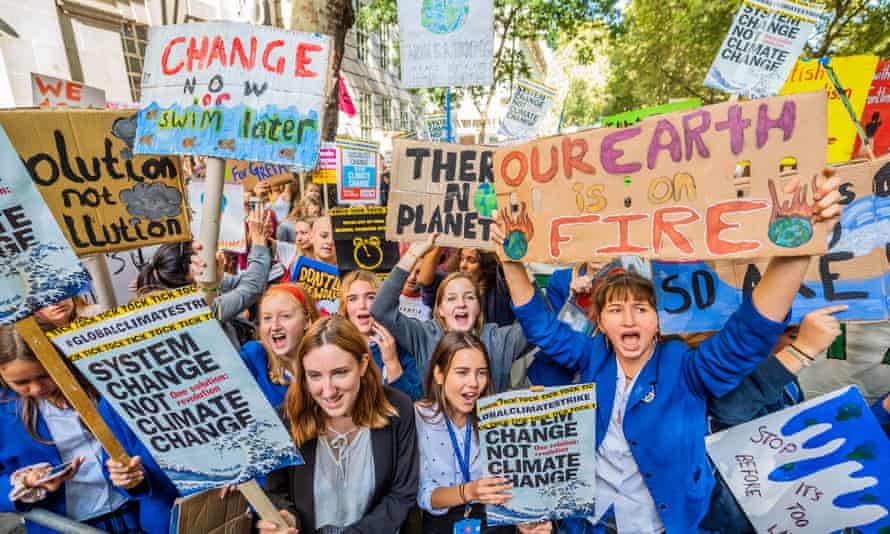Several of the world’s leading scientists plan to launch an independent expert group this week to advise, warn and criticise global policymakers about the climate and nature crises.
The new body has been inspired by Independent Sage – the cluster of British scientists who have held UK ministers and civil servants to account for their lack of transparency and mishandling of the Covid pandemic.
The Climate Crisis Advisory Group, comprising 14 experts from 10 nations and every continent, aims to have more of an international reach and provide the global public with regular analysis about efforts to tackle the global heating and biodiversity crises.
Headed by the former UK chief scientific adviser Sir David King, the new group will issue monthly updates about the state of the global environment at meetings that will be open to the media and the public. These online gatherings will be chaired by the BBC presenter Ade Adepitan.
“We are hoping that by putting expertise directly into the public domain we are reaching into policymakers’ decision processes, and into the financial sector and how they invest in our future,” King told the Observer. “We are not just going to say ‘this is the state of the global climate’, but also what should the global response be from governments and companies … What we do in the next five years will determine the future of humanity for the next millennium.”
The experts – who include Fatih Birol, the head of the International Energy Agency and Johan Rockström, the director of the Potsdam Institute for Climate Impact Research – also plan to issue statements and respond to journalists’ inquiries on breaking news, such as declarations by the G7, reports by the Intergovernmental Panel on Climate Change, new targets set by national governments, actions taken by major corporations, and geoengineering proposals, such as refreezing the Arctic.

King hopes the group will emulate the impact of Independent Sage, which he set up early in the pandemic to counter a lack of transparency over Covid on the part of the UK government. At that time, he said, the official Sage – the government’s Scientific Advisory Group for Emergencies – were refusing to disclose minutes of its meetings and even the names of its members. This has subsequently changed as a result of pressure by the independent alternative.
“I’ve been amazed by the response to Independent Sage,” King said. “All 12 members have become media personalities. I hope we get the same level of interest for the climate group.”
The focus will be different. While Independent Sage has pushed for more transparency in pandemic decision-making, the Climate Crisis Advisory Group will press for more urgency. Currently, there is a large amount of data from the IPCC and in academic journals about the long-term risks of global heating, but little in the way of rapid response to new developments.
A draft launch statement warns the Earth may have already passed several dangerous tipping points, including melting ice sheets, the slowdown of Atlantic circulation and the dieback of the Amazon rainforest, which highlight the need for speed. “Only by acting quickly and robustly will we be able to stabilise climatic conditions, ensure a just transition and protect vital biodiversity and ecosystem functions for the next generation,” the statement says.
The new body highlights growing concern among scientists and world bodies that global climate action is too slow. Earlier this year, 126 Nobel laureates declared a planetary emergency. Last month, the International Energy Agency said exploitation and development of new oil and gas fields must stop this year if the world is to stay within safe limits of global heating and meet the current goal of net zero emissions by 2050.
The draft statement says ambition needs to be raised still higher. “Net zero greenhouse emissions by 2050 is no longer enough to halt the climate crisis and we need to reach carbon net zero by 2035 to 2040,” it says.
King said that discussions with other panel members had showed how rapidly things can change even in the short term. One member, based in the Arctic Circle, told him temperatures had shifted from minus 30C to plus 35C in just a few weeks, leading to unusually rapid ice melt.
“This rapid heating is threatening the whole world. This thing is cascading upwards and has got many of us extremely worried,” he said.

Average Rating